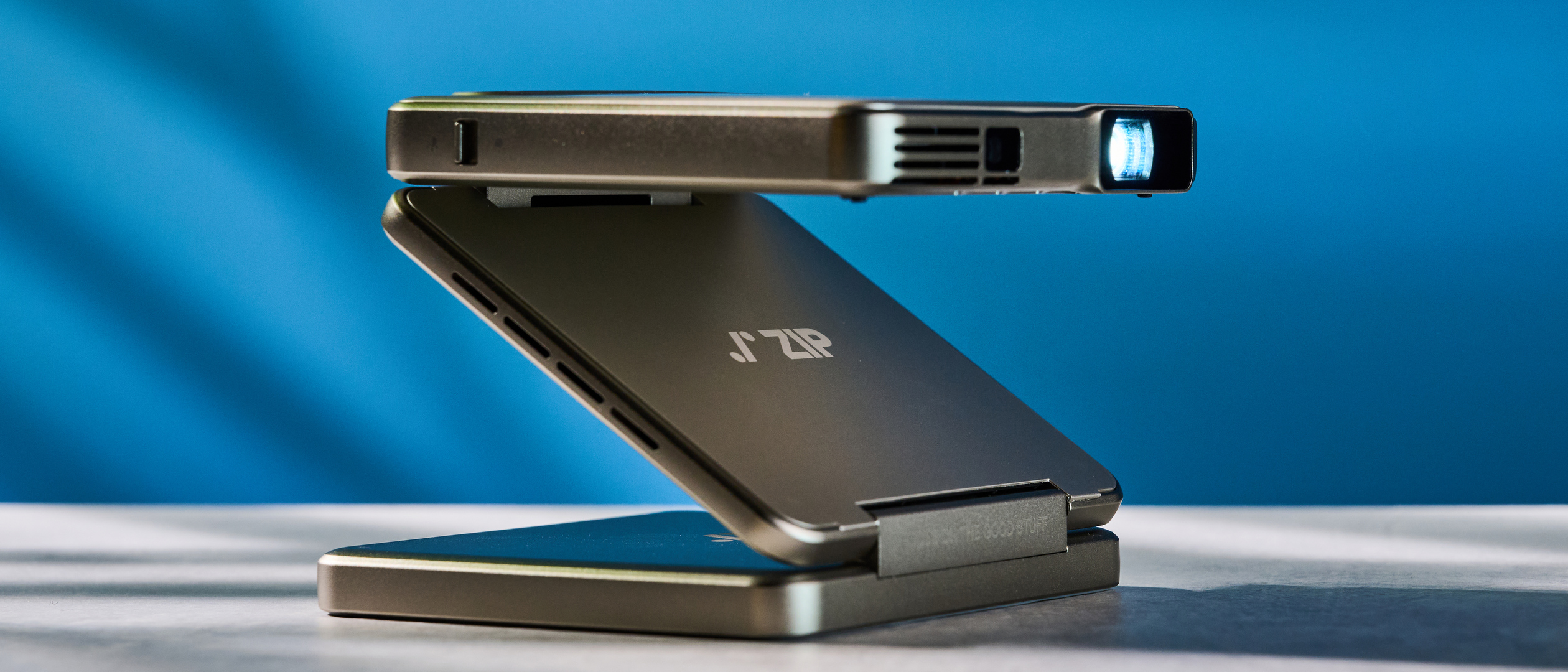I just went swimming with these smart googles — here’s what happened
Taking a dip with the FORM smart swimming goggles
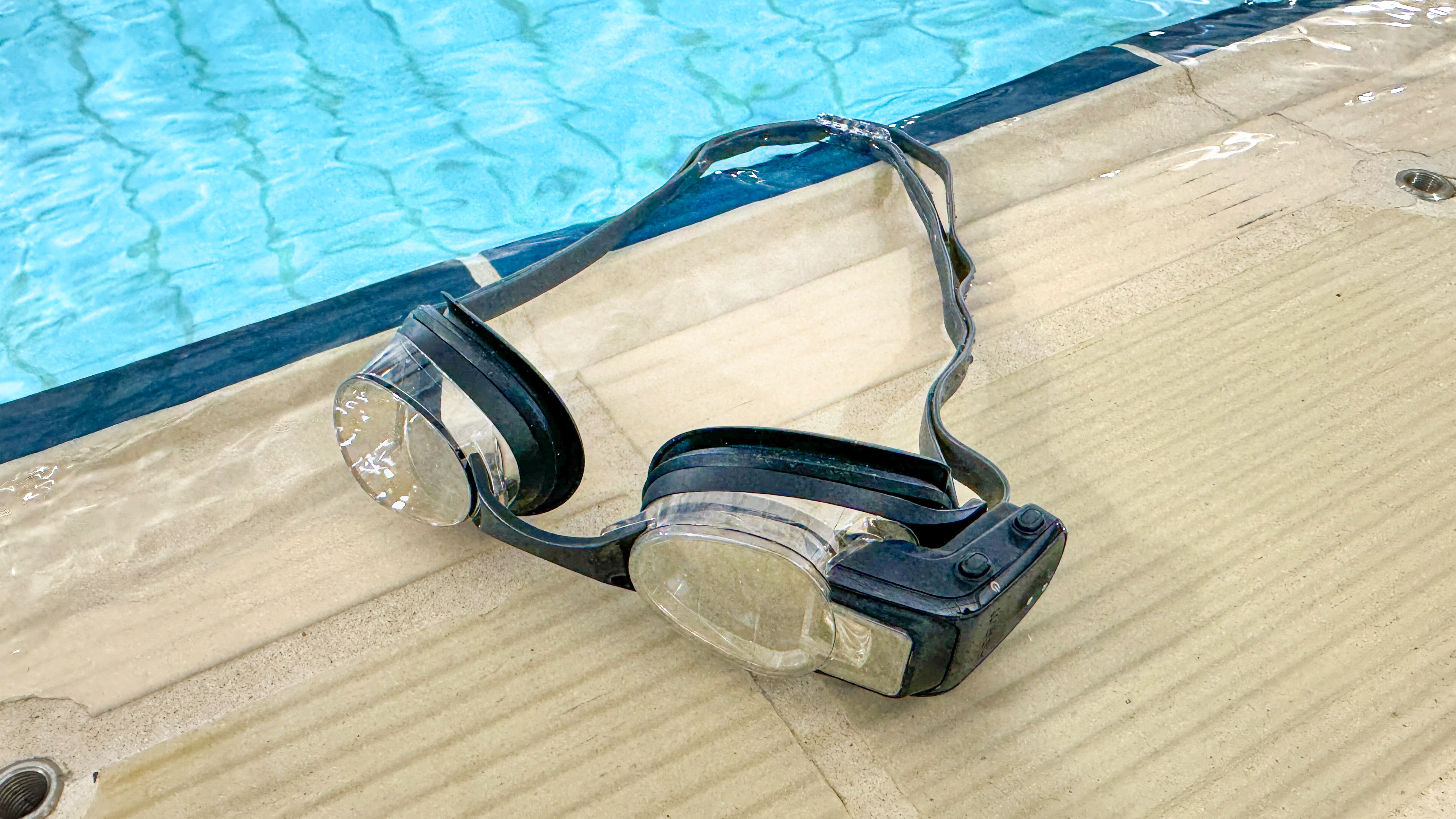
Swimming has always been an analogue sport for me. Every time I hit my local pool, I’ve done so without a sports watch strapped to my wrist or even any music playing in my ears. That’s largely to switch off — I barely remember to count the lengths I’ve done before heading to the sauna. But because of this approach, my swimming prowess has stagnated for years.
Much like embracing progressive overload when weight training or keeping a close eye on pace during a 10K, having accountability is key to achieving better results. To that end, I strapped on a pair of the FORM Swim Goggles to see how my performance in the pool holds up.
FORM’s goggles have been around for a little while now. They’re ostensibly a pair of swimming goggles with a heads-up display (HUD) projected onto the interior of the right lens. This comes from a housing built onto the side that also contains the battery, Bluetooth and necessary sensors (accelerometer and gyroscope). It results in a slightly bulkier frame than traditional goggles but puts all the relevant metrics you’d usually get from a sports watch — time, distance, calories — right in front of your eyes.
I’ll just mention at this point, I've used the FORM goggles for exactly one swim and only in the pool. There’s no on-board GPS, so you’ll need to pair them with a GPS watch for open water swimming if that takes your fancy. But it’s November here in the U.K. as of this writing and I’d rather avoid frostbite, so it's the pool for me.
Getting started

Once you’re set up (the goggles charge via a proprietary USB charging cable and last up to 16 hours from full) and synced with either the Android or iOS app, you’ve got a choice of either lap swimming or interval swimming to record. I went for the lap option because I’m not exactly at home in the water and I wanted to keep things simple.
Lap swimming, or "free swim", will just track your full swim with pauses built in, while interval offers a bit more detail inside the app — actually breaking down your sets as you pause at the wall at the end of each length.
The good news is that right from the off, the FORM Swim Goggles strap felt comfortable, and the goggles fit snugly over my eyes. You’re carrying a tiny bit of extra weight versus regular “dumb” goggles, but I didn't notice this at all once I was in the water. Maybe more accomplished swimmers will find the drag effect of the HUD unit something to overcome, but for me it wasn't a problem.
Sign up to get the BEST of Tom's Guide direct to your inbox.
Get instant access to breaking news, the hottest reviews, great deals and helpful tips.
The goggles come with a selection of different nose bridges you can use to find the right fit for your face, and the strap is very easy to adjust for comfort.
When it came time to actually get in the water and start kicking, the FORM goggles came into their own. The tracking seemed flawless, at least to me, and it didn’t take me long at all to adjust to having the HUD there when I needed it. It’s certainly better than trying to look down at a watch all the time. The goggles didn't fog up or leak any water and I spent the first 20 minutes marvelling at the time and distance as I moved up and down the 25m pool.
As near as I could tell, the tracking was spot on. The goggles would pick up when I reached the end of a length and either switch to rest if I paused (with a handy countdown timer to stop me from getting too comfortable) or go right back to recording my strokes when I carried on.
Getting started doesn't take more than a few button presses, and I simply kept tabs on the core stats: time, distance, calories and rest during my first swim. You can do much, much more with these goggles.
Diving in
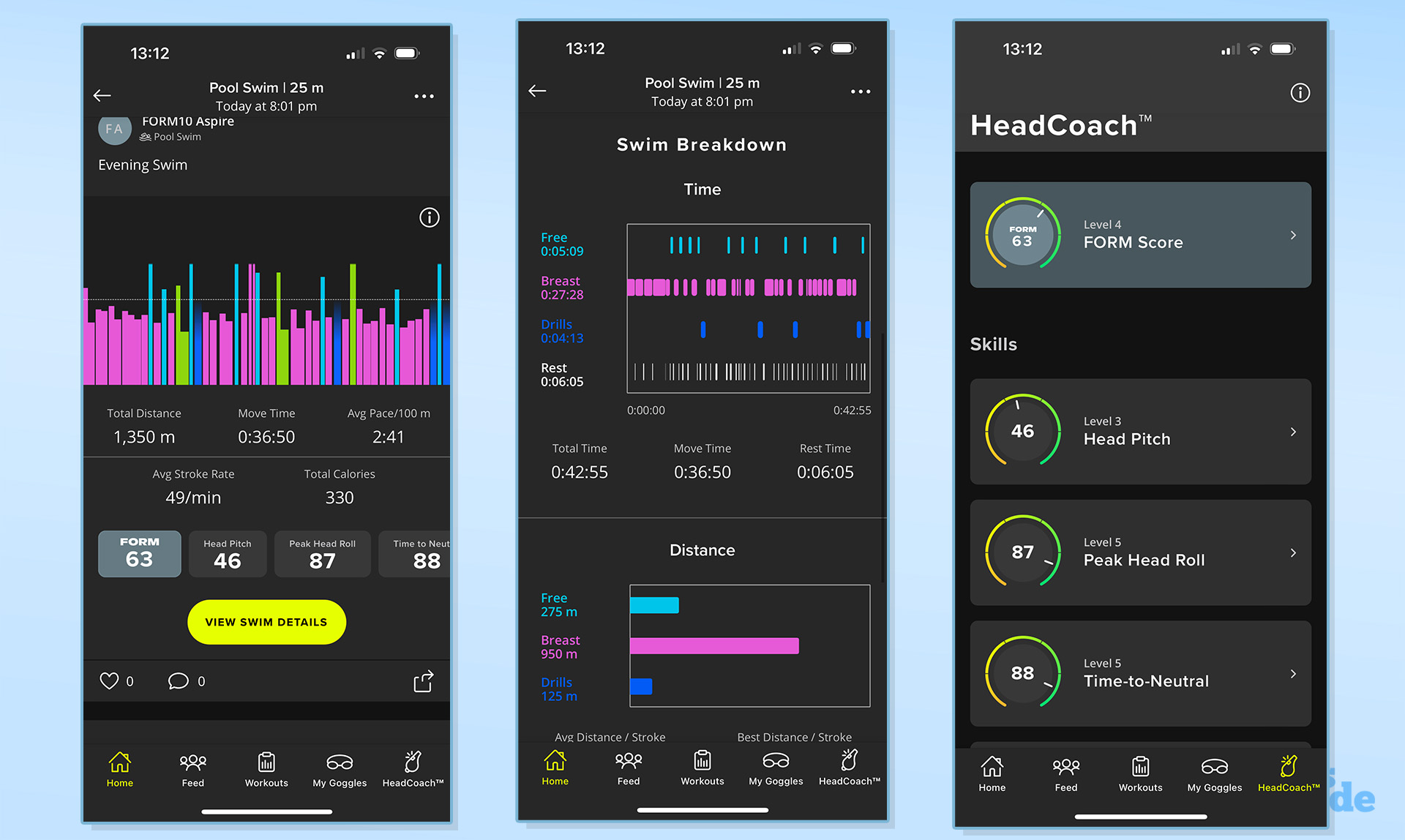
Did using the FORM Swim Goggles improve my swimming? Yes, in the way that putting performance metrics down gives you a realistic route to progression — rather than just going on feel. But FORM is actually much more than that.
Although the brand started as a pair of smart goggles, it’s become a fully-featured swim-related platform; something akin to Whoop. Once you’ve signed up to a membership, you can unlock training plans or individual workouts that you can then load onto the goggles. I’ve tried a similar thing with the Coros Vertix 2 recently. It’s a great way to put a structure in place to maximise your training and stop you from phoning it in during a trip to the pool. Of course, you can also automatically share your progress with Strava if you like to keep things in one place.
But the biggest new feature is called Headcoach and works to improve your technique through real-time visual coaching as you’re swimming. For example, the goggles will pick up on head roll during your stroke and give you instant feedback suggesting you can minimize it while coming up for a breath. Other elements Headcoach will train you on include head pitch, time-to-neutral (the proportion of your breathing stroke it takes to return your head to the water), interval pacing and set pacing.
For each skill, you’ll get visual coaching through the goggles but also a detailed analysis in the FORM app to help you see what you need to work on and measure your progress over time.
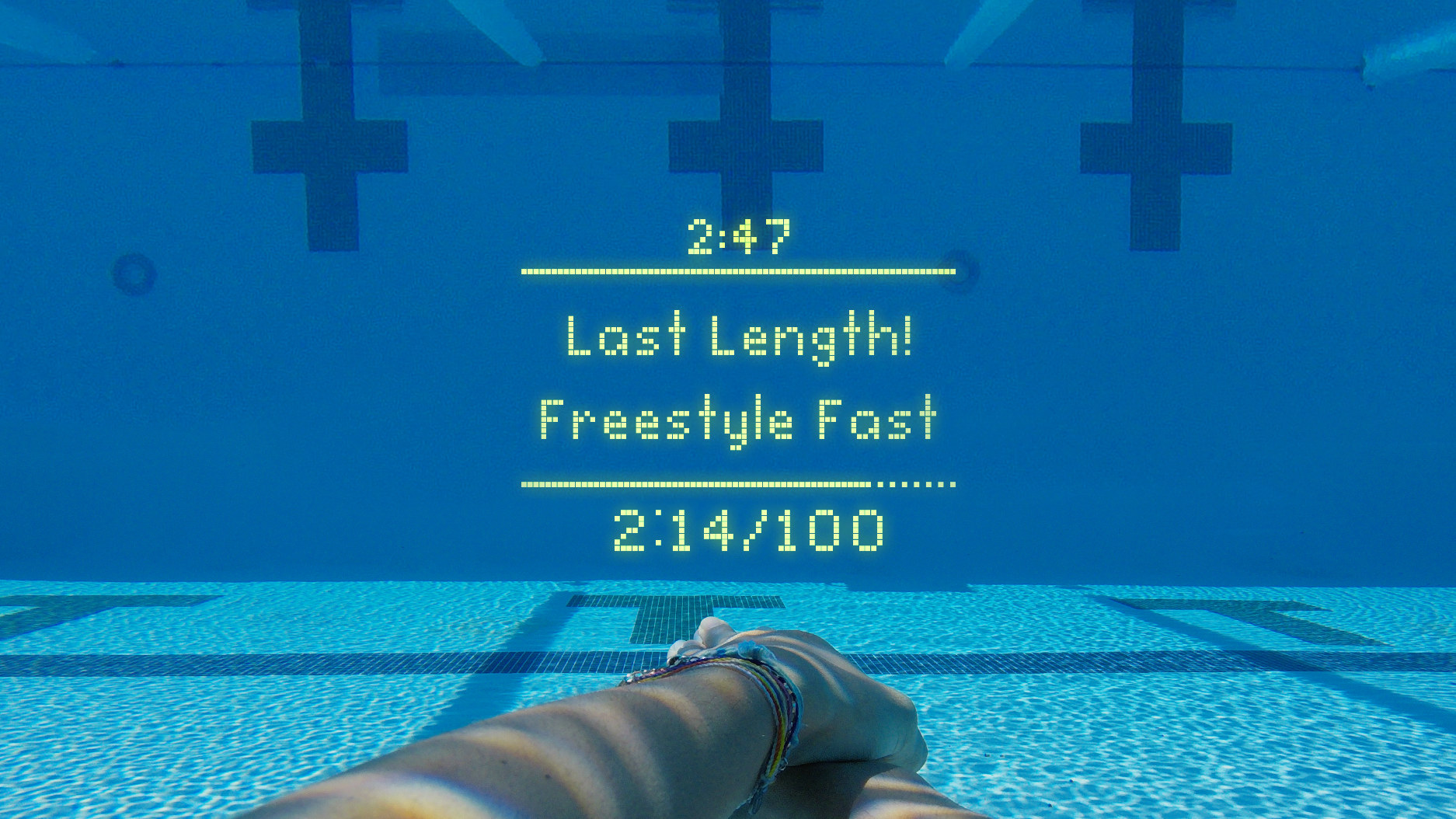
What’s more, FORM has partnered with swimming pros to include educational videos to guide you through these techniques — all within the app. And for what it’s worth, the head of coaching science at FORM is a three-time Olympic swimmer.
For my first swim, I didn't engage the Headcoach feature, but the goggles recorded things like my head pitch anyway for me to view in the app. You can see the results on the far right in the screenshot above. In future swims I'll seek to improve these skills and hopefully, with the help of the coaching, cut through the water a little smoother than I currently do.
Finding my depth
Are the FORM goggles a great way to become a better swimmer? There’s no question in my mind that’s the case. But, here’s the rub — like so much of connected fitness, you’ll need to pay for the premium membership to make them worthwhile. A subscription to FORM’s Premium tier will set you back $15 a month. Although it must be said, you’ll get a year for free with purchase of the goggles at $249.
While the goggles are premium and certain to last a long time, cumulatively it’s a lot to spend, so you need to be unwavering in your commitment to improving your swim performance. In my case, I’m not sure I can justify the outlay on top of, say, a general purpose fitness membership like Apple Fitness+ or Fitbit Premium.
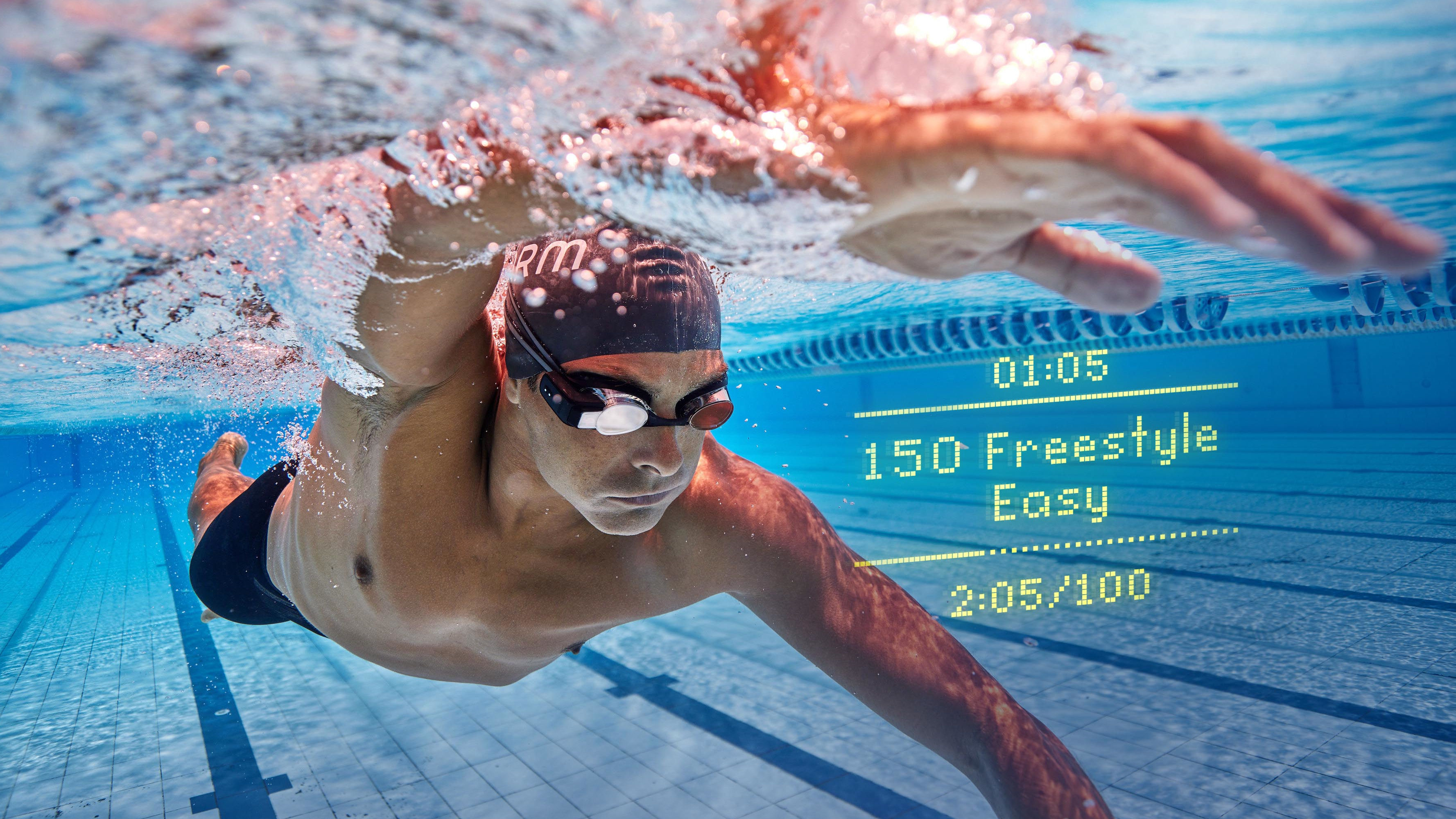
But if you're an accomplished triathlete or mulling over an Ironman, I'm sure this is the best way to improve in the water short of hiring an actual human coach.
Also keep in mind that this was my first swim with the FORM smart goggles. I’m aiming to try and get to the pool as regularly as I can over the coming winter. So I'll be keeping a close eye on my metrics and seeing if you truly can benefit from donning a pair of smart goggles, paying a subscription and heading for the deep end.
More from Tom's Guide

Jeff is UK Editor-in-Chief for Tom’s Guide looking after the day-to-day output of the site’s British contingent.
A tech journalist for over a decade, he’s travelled the world testing any gadget he can get his hands on. Jeff has a keen interest in fitness and wearables as well as the latest tablets and laptops.
A lapsed gamer, he fondly remembers the days when technical problems were solved by taking out the cartridge and blowing out the dust.
